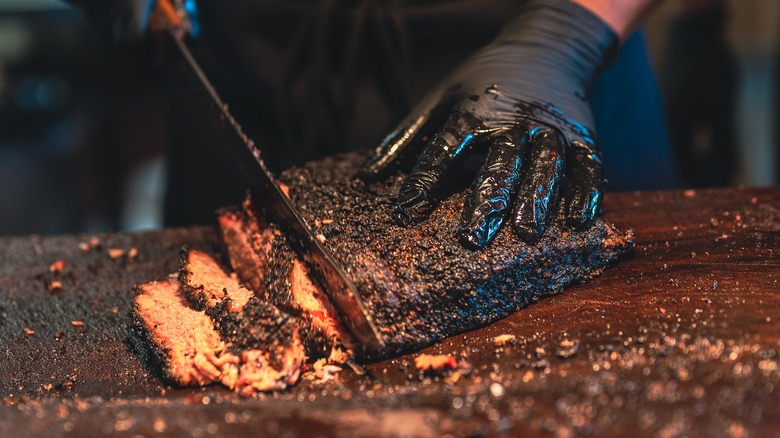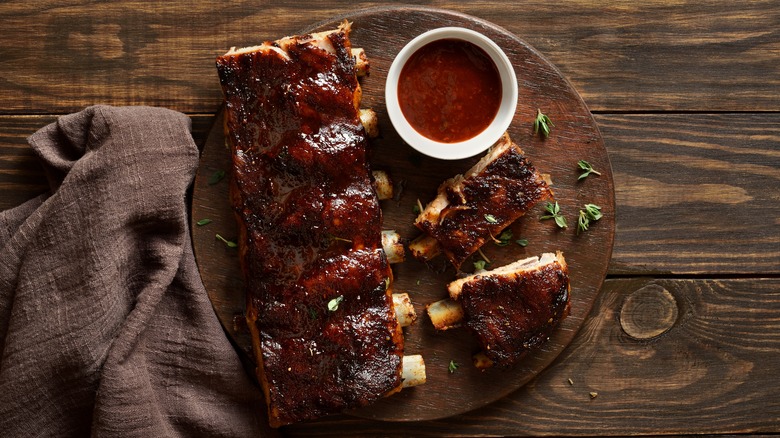Why You Should Eat At A BBQ Restaurant Earlier In The Day
Part of the reason good barbecue is so tasty is that it's usually cooked to pitmaster perfection on site. The meats are often smoked overnight, or cooking begins in the wee hours of the morning to ensure that the low-and-slow technique does its job correctly (brisket, in particular, benefits from a long cook). In fact, we'd consider it a barbecue red flag if the restaurant where you're eating didn't already smell delicious before you walked in the door (think old cartoons with characters following their nose and floating through the air).
According to Greg Blonder, a food scientist who spoke with America's Test Kitchen, there's a scientific correlation between freshness and flavor when it comes to barbecue. Essentially, its smell and taste come from two chemicals: syringol and guaiacol, respectively. They don't stick around long, though, and when they evaporate, so do some of the best aspects of barbecue — the meat's intoxicating aroma and flavor. So, if you head to your favorite barbecue joint earlier in the day, the food is going to be fresher and, therefore, tastier.
That doesn't mean leftover barbecue isn't worth eating. You can certainly heat it up the next day, so we're not suggesting that you toss it out — too much food is wasted in the U.S. each year as it is. But if that meat-and-three plate just isn't quite hitting the way it did the day before, now you know why.
More tips for scoring the tastiest barbecue
If the talented pitmasters make their barbecue with love, it will probably still taste pretty good the next day. That said, common sense dictates that food is at its best when it's fresh and hasn't been languishing in the fridge or repeatedly reheated. But how do you discern great barbecue restaurants from the ones that might be cutting corners?
When speaking with ATK, Greg Blonder suggested keeping an eye out for busy barbecue spots, as you're more likely to get fresh food whenever you arrive, even if it's later in the day. Some places even keep their pits burning 24 hours a day, meaning fresh barbecue is available whenever diners arrive. Naturally, from a business perspective, a place like this must be popular enough to sell plates in high volumes, so nothing is wasting away under heat lamps.
Another sign Blonder says to watch out for is food that comes drenched in sauce, as this might be a ploy to cover up the food's mediocrity. Also, if a restaurant is already reheating food by the time you order it, like tossing meat back on the grill, that magic window of freshness has likely already slammed shut. Our own insider tip: if there's a roll of paper towels and a sauce caddy waiting for you on the table at your local barbecue dive, you're probably in for a lip-smacking good time.

